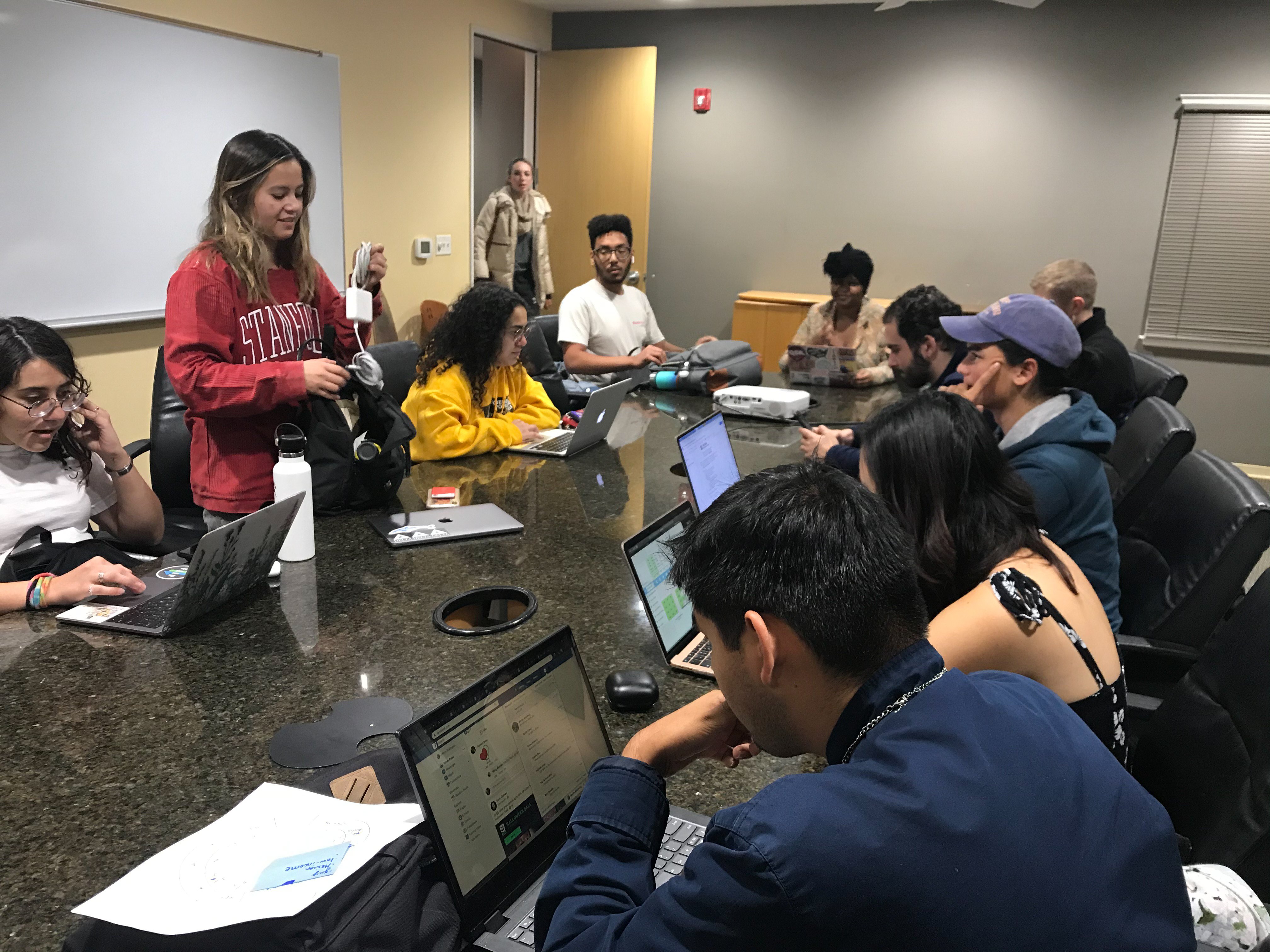At the 11th meeting of the 21st Undergraduate Senate, Senators discussed sexual assault, the judicial process of the Office of Community Standards and allocating dorm budgets to subsidize feminine hygiene products.
Senators Martin Altenburg ’21 and Jeffrey Rodriguez ’20 voiced their concerns about current course fees for undergraduate, coterm and post-graduate classes. Altenburg and Rodriguez serve on a working group with Vice Provost for Education Harry Elam which aims to make Stanford more accessible, especially for First-Generation and/or Low-Income (FLI) students.
Some introductory courses in engineering, product design, and arts require course fees ranging from $30 to $900, according to estimates from Altenburg and Rodriguez. Because these fees are not specifically covered by financial aid, they can be a barrier to FLI students.
“One of our biggest goals for this year is to create a more unified effort with students from FLI,” Altenburg said.
Rodriguez cited that thirty percent of the Creative Expression WAYS requirements have course fees. Senators said that though they are against course fees, they would not want to burden Creative Expression courses and the art department and would thus consider putting it into tuition. Their recommendations for Elam are not yet complete. This is part of the greater discussion over first-year course requirements that the Faculty Senate is currently engaged in.
Altenburg and Rodriguez proposed that the ASSU host a town hall for questions on undergraduate life, particularly on course fees, similar to last year’s town hall centered around mental health.
Senator Mià Bahr ’22 added that the issue of course fees had been mentioned in last week’s Faculty Senate meeting, as part of the larger conversation regarding unit reductions for major requirements. Senators voiced frustration at the lack of progress that has been made on this issue.
“[Students] don’t need extra courses,” Bahr said. “They need financial security to not have to work in college anymore. What’s the point of adding more courses to their schedule if they’re having trouble finishing homework because they have to work?”
Bahr recommended that the Undergraduate Senate work closer with the Faculty Senate in order to make this issue a priority for the administration. Senators voiced their aims of phasing out textbook fees before addressing iClickers and eReaders.
Senator Kobe Hopkins ’22 suggested creating an academic plan for each major for students with no prior background, citing that there is not only a financial barrier for FLI students to pursue classes, but also an experience barrier. Hopkins said he often hears from his roommate of the noticeable disparity between the STEM knowledge of FLI students and students coming from college-prep schools.
“My high school didn’t have CS,” Hopkins said. “I never touched CS, so if I took CS here I would already be behind.”
Executive Vice President of the Student Body Isaiah Drummond ’20 updated the Senate meeting with Vice Provost for Student Affairs Susie Brubaker-Cole and Senior Vice Provost of Education Harry Elam. Drummond reported that the Alcohol Solutions Group will release its findings within the next week and that ResX will announce its changes to staffing positions and neighborhood layouts in December.
Bahr updated the Senate that her bill to begin conversations regarding communities that are disproportionately affected by sexual violence–such as the transgender community, the queer community, women of color and sorority members–has received support from the Women’s Community Center, Queer Student Resources and six fraternities. Sorority chapters will respond in the following week.
Bahr intends to work with co-ops, self-ops, and dorms that host parties to discuss how they can promote safe environments. She also intends to send a letter requesting that at least 10 residential spaces be made available for sexual assault survivors to move into at any time because social isolation has been found to be a significant problem seen in undergraduate assault victims.
Senator Sam Schimmel ’22 updated the Senate that the Office of Community Standards (OCS) is currently seeking four students to reevaluate the judicial proceedings involving Honor Code violations. Their central issue is whether the amount of evidence required to convict a student of wrongdoing is too high.
Senate Chair Munira Alimire ’22 said that she had worked in OCS judicial proceedings previously and had heard that the high evidentiary threshold was not without reason.
“Often there are professors with a personal vendetta, especially in the Law School, so I know we have this standard to protect students,” Alimire said.
The Senate can ratify or veto any changes made to OCS protocol.
Senator Anthony Duarte ’22 said that he planned on speaking with residential staff members about allocating some dorm budget to feminine hygiene products. He plans on deciding how much each house or dorm should allocate on products and said that he hopes to make this and access to Plan B a permanent part of residential life before the neighborhood system comes into play.
Contact Sonja Hansen at smhansen ‘at’ stanford.edu.
